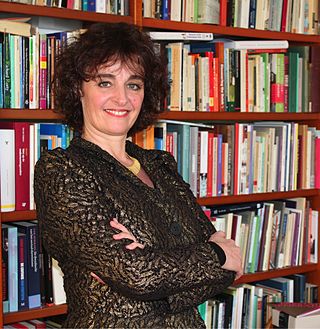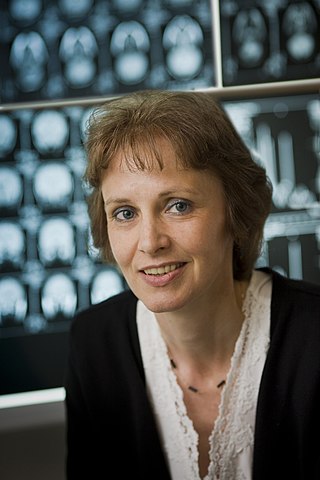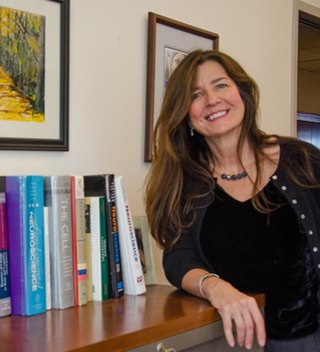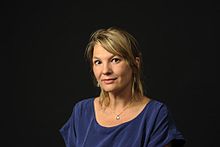
Leiden University is a public research university in Leiden, Netherlands. It was founded as a Protestant university in 1575 by William, Prince of Orange as the first university in the Netherlands.

The Vrije Universiteit Amsterdam is a public research university in Amsterdam, Netherlands, being founded in 1880. The VU Amsterdam is one of two large, publicly funded research universities in the city, the other being the University of Amsterdam (UvA). The literal translation of the Dutch name Vrije Universiteit is "Free University". "Free" refers to independence of the university from both the State and the Dutch Reformed Church. Both within and outside the university, the institution is commonly referred to as "the VU". Although founded as a private institution, the VU has received government funding on a parity basis with public universities since 1970. The university is located on a compact urban campus in the southern Buitenveldert neighbourhood of Amsterdam and adjacent to the modern Zuidas business district.

Robertus Henricus "Robbert" Dijkgraaf FRSE is a Dutch theoretical physicist, mathematician and string theorist, and the Minister of Education, Culture and Science in the Netherlands from 2022 until 2024. From July 2012 until his inauguration as a minister, he had been the director and Leon Levy professor at the Institute for Advanced Study in Princeton, New Jersey, and a tenured professor at the University of Amsterdam.

Carlo Willem Joannes Beenakker is a professor at Leiden University and leader of the university's mesoscopic physics group, established in 1992.

Frederik Herman Henri "Frits" Kortlandt is a Dutch former professor of descriptive and comparative linguistics at Leiden University in the Netherlands. He writes on Baltic and Slavic languages, the Indo-European languages in general, and Proto-Indo-European, though he has also published studies of languages in other language families. He has also studied ways to associate language families into super-groups such as the controversial Indo-Uralic.

Dorret I. Boomsma is a Dutch biological psychologist specializing in genetics and twin studies.

The Spinoza Prize is an annual award of 1.5 million euro prize money, to be spent on new research given by the Dutch Research Council (NWO). The award is the highest scientific award in the Netherlands. It is named after the philosopher Baruch de Spinoza.

Edward Peter Jacobus (Ed) van den Heuvel is a Dutch astronomer and emeritus professor at the Astronomical Institute Anton Pannekoek of the University of Amsterdam.
The Canon of the Netherlands is a list of fifty topics that aims to provide a chronological summary of Dutch history to be taught in primary schools and the first two years of secondary school in the Netherlands. The fifty topics are divided into fourteen sections.

Patricia Maria (Patti) Valkenburg is a Distinguished Professor of Communication at the University of Amsterdam. She is the founder and director of Center for research on Children, Adolescents, and the Media (CCAM). She is a fellow of the International Communication Association. In 2011, she received the Spinoza Prize, the highest Dutch award in science.

Dick Frans Swaab is a Dutch physician and neurobiologist. He is a professor of neurobiology at the University of Amsterdam and was until 2005 Director of the Netherlands Institute for Brain Research of the Royal Netherlands Academy of Arts and Sciences.

Joseph Theodoor "Joep" Leerssen is a Dutch comparatist and cultural historian. He is professor of European studies at the University of Amsterdam, where he also holds a Royal Netherlands Academy Research Professorship. He was awarded the Spinozapremie in 2008.

Naomi Ellemers is a distinguished professor of social psychology at Utrecht University since September 2015.

Adrianus Willem "Aad" van der Vaart is a Dutch professor of Stochastics at the Delft Institute of Applied Mathematics at Delft University of Technology.

Ineke Sluiter is a Dutch classicist and professor of Greek Language and Literature at Leiden University since 1998. Her research focuses on language, literature, and public discourse in classical antiquity. She was a winner of the 2010 Spinoza Prize. Sluiter has been president of the Royal Netherlands Academy of Arts and Sciences since June 2020, and previously served as vice president from 2018 to 2020.

Marjo S. van der Knaap is a Dutch professor of pediatric neurology at VU University Amsterdam and Amsterdam University Medical Centers. She was a winner of the 2008 Spinoza Prize. Her research focuses on white matter disorders.
Marian Bakermans-Kranenburg is a Dutch psychologist focused attachment and emotion regulation in parents and their children, with special emphasis on the neurobiological processes involved in parenting and development. She is currently a Full Professor at Ispa-Instituto Universitário (Portugal), a visiting Scholar & Research Associate in the Center for Attachment Research at The New School for Social Research, and a visiting Consultant at the National Institute of Education of the Nanyang Technological University (Singapore).

Amina Helmi is an Argentine astronomer and professor at the Kapteyn Astronomical Institute at the University of Groningen in the Netherlands.
Helga (Elga) De Vries is a Dutch neuroimmunologist and a Full Professor in the Department of Molecular Cell Biology and Immunology at Amsterdam University Medical Centers in Amsterdam, The Netherlands. De Vries is a leader in the field of blood brain barrier research. She founded the Dutch Blood Brain Barrier Network and is the President of the International Brain Barrier Society. De Vries’ research explores the interactions between the brain and the immune system and she specifically looks at neurovascular biology in the context of neurodegenerative diseases such as multiple sclerosis and Alzheimer's disease.

Betty Jo "BJ" Casey is an American cognitive neuroscientist and expert on adolescent brain development and self control. She is the Christina L. Williams Professor of Neuroscience at Barnard College of Columbia University where she directs the Fundamentals of the Adolescent Brain (FAB) Lab and is an Affiliated Professor of the Justice Collaboratory at Yale Law School, Yale University.


















